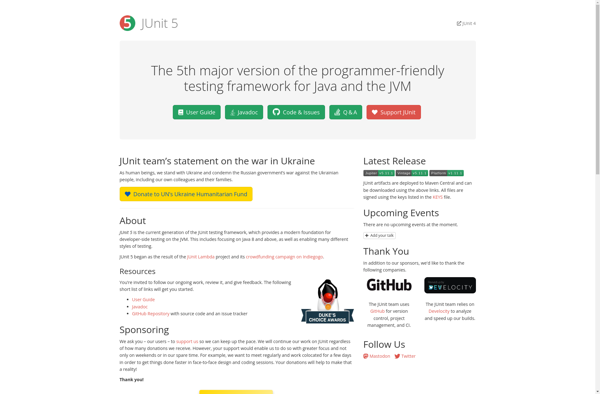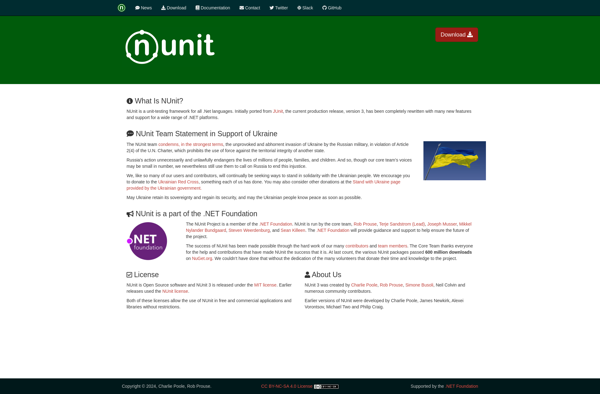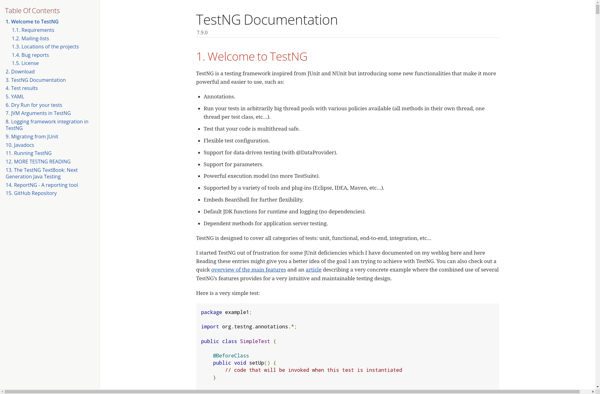JUnit

JUnit: Open-Source Unit Testing Framework for Java
JUnit is an open-source unit testing framework for Java. It allows developers to write automated tests to validate units of code and quickly identify bugs early in development.
What is JUnit?
JUnit is an open-source unit testing framework for the Java programming language. It provides tools and APIs for creating test cases, executing tests, and reporting results.
Some key features and benefits of JUnit include:
- Allows for automated unit testing, which improves software quality and reduces bugs
- Simple API for defining and running repeatable tests
- Additional extensions available for testing aspects such as exceptions and timeouts
- Integrates easily into build tools like Maven and Gradle
- Supported by all major IDEs including Eclipse, IntelliJ, and NetBeans
- Wide adoption making it an industry standard for unit testing Java applications
To use JUnit, developers annotate Java classes and methods with @Test, then JUnit runs each @Test and reports the results. This allows for rapid feedback during development by catching bugs early. JUnit scales well for large test suites spanning multiple classes and packages. Overall, JUnit is essential for any Java developer looking to implement automated testing and continuous integration.
JUnit Features
Features
- Provides annotations to identify test methods
- Provides assertions for testing expected results
- Automates running tests and reporting results
- Integrates with build tools like Maven and Gradle
Pricing
- Open Source
Pros
Cons
Official Links
Reviews & Ratings
Login to ReviewThe Best JUnit Alternatives
Top Development and Testing and other similar apps like JUnit
NUnit

TestNG
